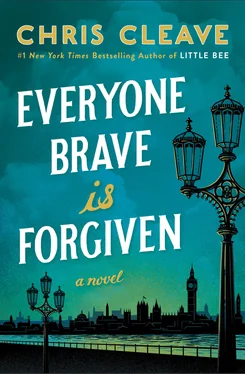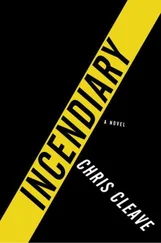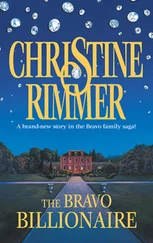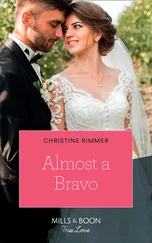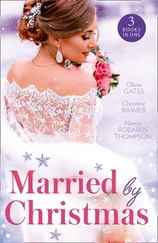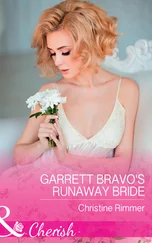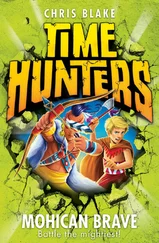She still thought that Alistair might have survived. The authorities might presume a man killed, but that was the authorities for you. To presume was always vulgar, while life was sometimes gracious. In the meantime she watched the lovers in Trafalgar Square, so as not to forget how it was done. In the bright square the couples clung, continually adjusting their grip. Now their fingers entwined, now their arms encircled the other’s waist as if life was not at all on their side, as if it might place the tip of its lever into any distance they allowed to open up between them. Watching them, Mary supposed the odds were against her. It was lovers who trusted luck least.
She marveled at the ease with which the young women moved. She watched them laugh and flush. They were all hope and helium, lovely to watch. Two years ago it had been her.
When it got too much, she walked down to the Embankment and sat on the granite wall. She ran her fingers over the iron dolphins that swam around the lampposts. Beneath her the brown water churned with all that was lost, and today she had no more morphine. It had been harder and harder to come by, and now it was gone. As the last of it wore off, she realized that she had no idea how to get more.
One often saw bodies at low tide, on the mud spits by the pontoons of Waterloo Bridge. Whether they were long dead and only now surrendered by the mud, or whether they were the newly despairing, Mary couldn’t tell. Bodies didn’t lie cleanly on the ground, the way they did in the cinema. In real life they appeared not to have been strewn, but sown. The dead were filthy, half buried, sometimes barely distinguishable from the mud or the rubble they lay in. One didn’t understand, until one had seen a great many bodies, the unconscious effort that one must be making every minute simply to keep one’s hands and face and clothes clean. The world’s surfaces were so filthy that the living touched them only with the tips of their fingers and the soles of their shoes. How grubby it was to die, to give up making that effort.
Above the mud spits, the lovers never looked down at the dead. Mary watched them clinging tight, their gaze on the horizon. It was a rule that lovers looked east toward the sea. She made herself look that way too.
A boat was unloading onto the Embankment steps — for Parliament, the longshoremen were saying. A case broke open and there were oranges, the first she had seen in months. They rolled across the gray granite and bounced down the mud-brown steps. They splashed into the brown river and sank from sight and bobbed up again, so vivid that she gasped. Tears came to her eyes because she understood how drab the world had become, how gray-brown, how close to fading entirely. She put her hands to her mouth and watched the oranges floating upstream on the tide. They were so… so… orange .
A confusion crept up on her. The waves rose and fell. The oranges were lost from sight. Was Alistair dead, while life continued? It was too startling. She could not remember whether she had received the letter from Major Simonson, or whether she had dreamed it. One dreamed so many things. Morphine was utterly convincing, that was the trouble — while life carried on blithely as if it had no competition in the business of conviction, and in consequence seemed less real. And meanwhile here were all these lovers, legions of them, strolling on Waterloo Bridge in the hot September sun. Was it possible that she was not numbered among them? The confusion grew worse until it was terror. Mary covered her eyes.
A golden retriever put its paws on the wall where she sat, and licked her face. Mary looked up to find it nose to nose with her. The dog was hopelessly high on life, as if it had taken forty-five times the recommended dose. It inclined its head, blinked at her, and trembled with unguarded joy.
“Hello you,” said Mary.
A man appeared — tall, uniformed, RAF. “I’m so sorry.”
“Why, what have you done?” said Mary, producing by instinct a small grin.
The man laughed. “The dog, silly. Oh look here, are you all right?”
“It’s nothing. Please don’t worry. I’ll be fine in just a moment.”
“But you’re upset. Can I do anything? Can I stand you a cup of tea?”
Mary stared up at the man. Of course he was ablaze with consolations. But when she opened her mouth to say something in her usual vein, Mary simply couldn’t. His looks made her ache, his kindness left her miserable. She felt his negative image, the absence a man left.
“I’m sorry,” she said. “Please, just go.”
“But you’re upset,” he said again, his head inclined to the same angle the dog had adopted, as if all degrees of upset might very simply be cured — perhaps by throwing a stick.
How nice it would be to link arms with him — to go to a café. If only I weren’t dead, she thought.
“I’m sorry,” she said again, and fled.
Her limp was worse, and pains shot through her body. Several times she became confused once more and had to stop. It had started raining without her noticing, and now the blacked-out night crept up on her too. Music rose from the dancing cellars. The swing beat boomed and a hot steam of exhaled smoke and body vapors rose through the air vents and grilles, as if the city were formed from the magma of such rhythms, cooled to a provisional solidity by the sober English rain.
She felt alternately distraught and euphoric. Sometimes she stumbled, and at other moments it seemed to her that she moved with no effort, gliding left and right to let the umbrellas pass, one-two-three, waltzing on the pavement while the cellars swung beneath her. London had always had this trick of living in two time signatures at once — the urgent and the always — each in earshot of the other.
She realized, with a cold sweat, that she probably ought not to go back to the garret alone and without the benefit of morphine. It was the same feeling she’d had by the river: not that she might harm herself, but that she might not know the difference if she did.
It was queer the way things crept: the night, and these feelings. One was brought up to scorn the tendency to despair. But it seemed that the darkness knew this, and found a way to reach one nevertheless. It was patient and subtle, gauging the heart’s output of light. Her confusion grew, the heart lucent and the mind lucifugous, the great clash of music in an endlessly accelerating rush: on and on and on.
She came to, the steam from the nightclubs rising around her, surprised to find her cigarette only half smoked. She felt a fear that was close to panic and hurried off again. She didn’t stop until she reached the Lyceum. The minstrel show was going on in the auditorium and she went in through the stage door from the alleyway.
In the basement it was quiet except for the laughter and applause from above. The children were sitting on the low raised stage where the band had played during the worst months of the bombing. The nightclub had gone back above ground now. Zachary was at an upright piano while Molly and Charles argued and Ruth, a new arrival, moped in a corner.
When Zachary saw her, he stopped playing. “What happened?”
“I’m quite all right,” she said, giving the children a bright smile. “I think I might just sit down for a moment.”
She woke hours later, wrapped in blankets. Her body was wet with sweat and wracked with unsparing pain. Molly was holding her hand. Zachary was kneeling beside her, laying a cloth on her forehead.
“You fainted,” Molly said.
She sat and looked around. Her joints were packed with hot glass.
“Oh…” she said. “Oh…”
Zachary turned to Molly. “Go off and play.”
After she did, Mary collected herself. “Zachary,” she said in her teaching voice, “would you find whoever handles these things among the players, and fetch me just one dose of morphine?” Then she added with perfect cunning: “Say it isn’t for me.”
Читать дальше
